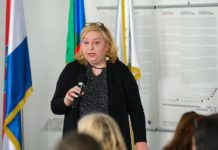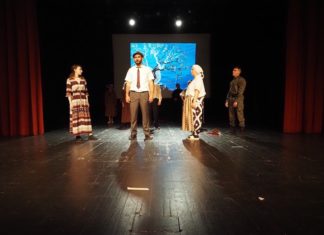You have been Rector of the University of Zagreb since 2014. How would you evaluate your work and the position of the University of Zagreb within the global framework today, in your second half of mandate?
Today, almost three years after assuming my mandate, speaking within the international framework, the University has made a great progress. According to the CWUR (Centre for World University Rankings) and their list which is one of the most famous and most comprehensive university ranking lists, the University of Zagreb ranks 536th as the only Croatian university among the thousands best world universities in 2016.
Our University is back on the Shanghai ARWU (Academic Ranking of World Universities) World Top 500 Universities list, ranking 420th and marking an exceptionally positive progress. We have also made it to many other world’s best universities lists we have not been a part of before, such as the THE (Times Higher Education), and we rank even better on those lists where the visibility of university’s scientific production is measured, the way we deal with the students and, so to speak, the pleasure of studying.
In that respect, I am satisfied, but I am not and cannot be satisfied with the fact that the strategy that envisages a rise of at least 4 percent of the increase in funding for education in general as well as for research and development has not been realized. Croatia allocates only 0.82 percent of gross domestic product for financing higher education and scientific research, which is certainly too low. If the allocations increased by 50 percent, or 1.2 percent of GDP, as in other countries, then we would only reach 60 percent of the European average.
Universities in Croatia are different and I certainly advocate for the polycentric development of universities as it provides greater opportunities for young people in their own living environments. University of Zagreb is almost as big as all other universities together. It has a long tradition and as an “old” university it has different needs from the “young” universities. “Young” universities need to develop faster than the University of Zagreb, which must not regress because of it, but we must all grow because the fact is that, no matter how much we all talk about it, we still do not have enough highly educated people.
What is the position of the University in the Croatian society?
There are some groups that systematically speak against the University, at a level that is not an academic one, and they have no arguments. But what we have managed to do is alliance, cooperation and unity of the Croatian Rectors’ Conference, Vice-rectors and deans. Croatian Rectors’ Conference, which I presided for one year in the second year of my mandate, has a major impact on education policy and higher education, and its decisions carry weight.
Generally, the dignity of professors in primary, secondary and tertiary education is not great enough, that is the values they promote are not respected. In some faculties we had a rather strong influence of politics, but now it has calmed down. Perception and understanding prevailed that faculties are no place for political activities. However, there is place for educational politics, socially-oriented politics and politics on Croatian future based on universal human values, which I call “colloquial biblical”. These are the values that derive from general civilizational values and European culture, based on respect for others, tolerance and democracy, respect for work and education as such.
I am particularly pleased and would like to emphasize the achieved consensus and understanding. I have the support of the Senate, and we have succeeded in raising the status and reputation of the rector, the vice-rectors and deans, who have become recognizable in the public and who act very responsibly.
Regarding your long experience, can you make a brief comment on student community in general?
I cooperate with the Students’ Union of the University of Zagreb and the Students’ Union at the level of Croatia, through the work of the Croatian Rectors’ Conference, and my experiences are positive.
A large number of students come to the University and want to complete their studies as soon as possible to achieve their career. Most of them are good or excellent students and complete their studies in the regular time frame. There are, here and there, issues with passing rates or qualifications for graduate university studies, but I would say that this is not so much on the students as on the programs that we need to improve.
Young people often opt for professional studies that are trendy at the moment, better exposed to promotion, and may not even know they would like to study something else, which is both more advanced and necessary, but they are not sufficiently informed about these professions. Therefore, we should still work on that. Some of these professions are technical, but also, for example, medicine, nursing, and others, where a large number of young people head to Europe, causing the so-called “brain drain”. Sometimes it happens that we cannot matriculate enough candidates because they are not ready enough after graduating from high school. This means that there is a need for promotion and better information at entering secondary schools, which will give them the opportunity to study the professions needed. That is why we need the curricular reform, and it is not just a reform of the work program and content of the subjects, but also the teaching of values and the discipline of learning because success is a result of persistent work and continuous learning.
Related to the last question, how you would comment the position of the Roma national minority in that framework?
When I look at the Roma community in Croatia, I can say that they have to adopt a learning culture yet, because they already have the culture of work. The Roma work all day and often very hard jobs, but it should be emphasized that learning is also a job. We need to act on the Roma community, especially on parents, to make them understand that learning is important and that being a good pupil and a good student is a part of Roma dignity. Roma have a tradition longer than the tradition of the Croatian people, and it includes different areas of culture and art, as well as their language řomani čhib, and other languages they speak, such as the Bayash. Thus, the basis is devoted work and respect for authority, such as teachers and professors, who must also meet the criteria that deserve such status and respect.
The Roma people are a great people who have their own culture of living and we as a society are obliged to give them the opportunity to harmonize with that society, and certainly schooling and education in general, is one of the most important segments. This way the faculty graduates will be like lighthouses to others.
Under-represented groups, and I also think of members of the Roma national minority, according to my experience, rarely graduate from high schools, although they are capable of studying and could be excellent students. It happens that competing with other applicants they do not have results good enough to enter the faculty. Competition is strong and there are many who have, perhaps slightly, better grades or graduate high school with a slightly better success of their baccalaureate. This is why they are denied to enter the faculty even though they are absolutely capable of studying. I believe that these young people from under-represented groups should be allowed to enter in a regular but non-quota procedure, provided, of course, that they meet the basic conditions. Of course, not everyone can enrol in the university, but this possibility is a matter of agreement that can be achieved in a variety of ways. It does not necessarily have to be the result of a special decision of the Senate, but can be regulated by the decisions of the faculty councils. When the enrolments are completed, theoretically it is possible, on those faculties where there is room, to enrol the Roma, or some other members of under-represented groups who have met the conditions for enrolment but have not been able to enrol according the rankings. Such a case of positive discrimination I find justified and I will try to advocate it.
You have been cooperating with the Roma community in Croatia for several years now ever since the times when you were the Dean of the Faculty of Humanities and Social Sciences in Zagreb. You have achieved a lot since then, especially at the Faculty of Humanities and Social Sciences. Which results would you emphasize as the most important?
While I was the Dean of the Faculty of Humanities and Social Sciences, this was the focal point of gathering of the Roma community on the occasion of major events and marking of Roma national holidays. This baton has been passed now to the Croatian Academy of Sciences and Arts. I find this even better because that higher level shows the wider commitment of the Roma community, not only in the scientific sense, but also in the wider social sense, higher than the university level itself. Mr. Zvonko Kusić, F.C.A. and my dear friend Mr. Veljko Kajtazi, MP, have found ways to promote significant events within the Roma community.
I am proud to point out my membership in the Croatian Romani Union “KALI SARA”, as well as being one of the two non-Roma members of the Roma National Council. I am very proud of all the acknowledgments I received because I enthusiastically and willingly helped and participated in all the projects that we have started, so to speak, from the scratch. I hope this big wheel will keep on turning.
At the Faculty of Humanities and Social Sciences in Zagreb we attached a bilingual plaque bearing text in Croatian and Romani language. We have initiated the Romani Studies at the Department of Indology and Far East Studies of the Faculty of Humanities and Social Sciences in Zagreb. There are classes of Introduction to the Romani Language I and II and the Introduction to Literature and Culture of Roma I and II given by my colleague Ljatif Demir who is a native speaker of Romani language. I also have to mention Professor Ježić who has continued the initiated work with will and perseverance. However, it is not enough to leave everything to individuals alone, we need the support of a wider environment that will restore that great enthusiasm with which we have started and continue with further work and development. I will, as a Rector, always support it.











